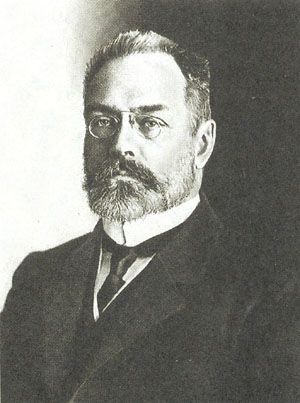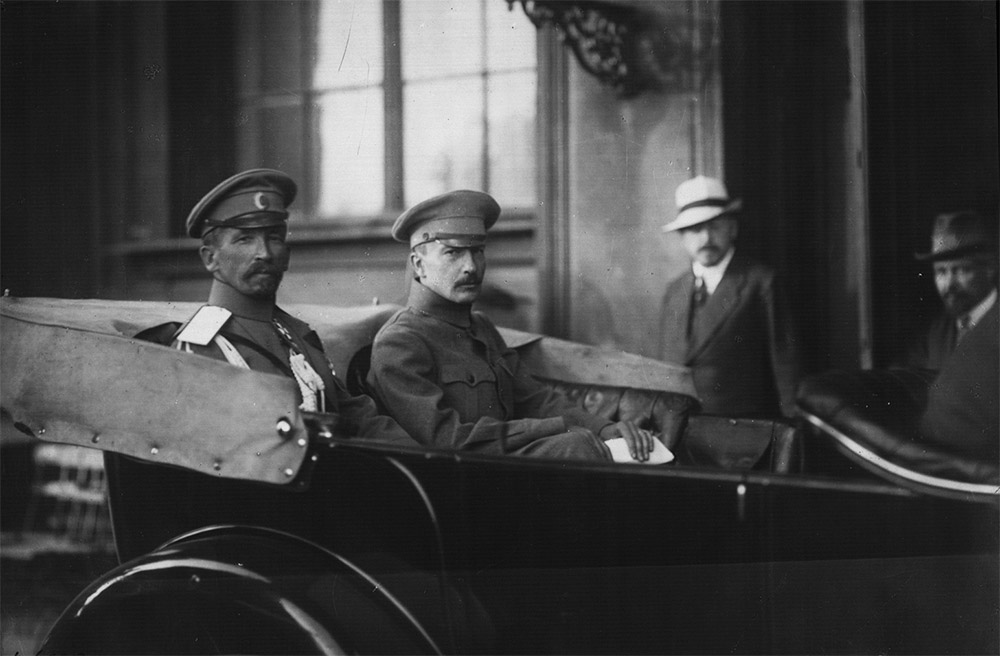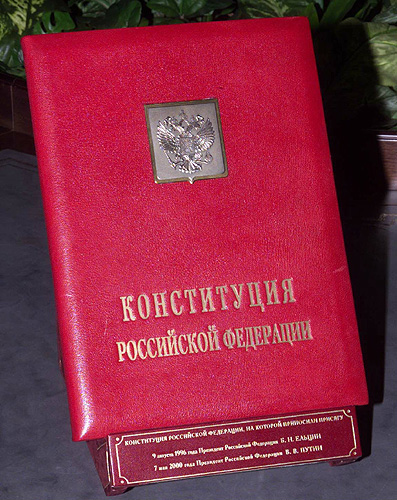|
Aleksandr Verkhovsky
Aleksandr Ivanovich Verkhovsky (; November 27, 1886 – August 19, 1938) was a Russian military and political figure. He was briefly the Minister of War of the Provisional Russian Government in 1917. Biography Born into a noble family. He studied at the Page Corps. After the shooting of the demonstration ( "Bloody Sunday") on January 9, 1905, he declared that he "considers it a shame to use weapons against an unarmed crowd." He was expelled from the corps and sent to the front of the Russo-Japanese War. For military distinctions he was awarded the Badge of Honor of the Military Order of the 4th degree and promoted to second lieutenant. General Staff Officer From 1905 to 1908 he served in the 3rd Finland Rifle Artillery Division. He graduated from the Imperial Nicholas Military Academy (1911). From 1909 - lieutenant, from 1911 - staff captain, from 1913 - captain. In 1911-1913 he commanded a company in the 2nd Finland Rifle Regiment. Since 1913 - senior adjutant of the head ... [...More Info...] [...Related Items...] OR: [Wikipedia] [Google] [Baidu] |
List Of Heads Of The Military Of Post-imperial Russia
This article presents the heads of the military departments of the Russian Provisional Government (Russian Republic), the Russian Soviet Federative Socialist Republic, Russian SFSR, the Soviet Union and the Russia, Russian Federation. Russian Provisional Government, Provisional Government (1917) Russian Republic (1917) Provisional All-Russian Government (1918) Russian State (1918–1920), Russian State (1918–1920) Russian Soviet Federative Socialist Republic (1917–1922) Soviet Union, Union of Soviet Socialist Republics (1922–1991) Russia, Russian Federation (1991–present) See also * List of heads of the military of Imperial Russia References {{DEFAULTSORT:List Of Heads Of The Military Of Post-Imperial Russia Lists of government ministers of Russia, Military ministers Ministers of defence of Russia Naval ministers ... [...More Info...] [...Related Items...] OR: [Wikipedia] [Google] [Baidu] |
Lavr Kornilov
Lavr Georgiyevich Kornilov (, ; – 13 April 1918) was a Russian military intelligence officer, explorer, and general in the Imperial Russian Army during World War I. He served as Supreme Commander of the Russian Army and as the military leader of the Whites in the Russian Civil War. He is particularly remembered for the Kornilov affair, an unsuccessful coup d’etat against the Provisional Government led by Alexander Kerensky. The event became a significant turning point in the Russian Revolution, strengthening the Bolsheviks' position and influence. Born in Ust-Kamenogorsk, Kornilov began his military career after graduating from the Mikhailovsky Artillery School and the General Staff Academy. He distinguished himself during the Russo-Japanese War and later served as a military attaché in Qing China. During World War I, Kornilov commanded the 48th Infantry Division and gained recognition for his daring escape from Austrian captivity in 1915. His successes on the Easte ... [...More Info...] [...Related Items...] OR: [Wikipedia] [Google] [Baidu] |
Russian Politicians
The politics of Russia take place in the framework of the federal semi-presidential republic of Russia. According to the Constitution of Russia, the President of Russia is head of state, and of a multi-party system with executive power exercised by the government, headed by the Prime Minister, who is appointed by the President with the parliament's approval. Legislative power is vested in the two houses of the Federal Assembly of the Russian Federation, while the President and the government issue numerous legally binding by-laws. Since the collapse of the Soviet Union at the end of 1991, Russia has seen serious challenges in its efforts to forge a political system to follow nearly seventy-five years of Soviet governance. For instance, leading figures in the legislative and executive branches have put forth opposing views of Russia's political direction and the governmental instruments that should be used to follow it. That conflict reached a climax in September and Octobe ... [...More Info...] [...Related Items...] OR: [Wikipedia] [Google] [Baidu] |
Military Theorists
A military, also known collectively as armed forces, is a heavily armed, highly organized force primarily intended for warfare. Militaries are typically authorized and maintained by a sovereign state, with their members identifiable by a distinct military uniform. They may consist of one or more military branches such as an army, navy, air force, space force, marines, or coast guard. The main task of a military is usually defined as defence of their state and its interests against external armed threats. In broad usage, the terms "armed forces" and "military" are often synonymous, although in technical usage a distinction is sometimes made in which a country's armed forces may include other paramilitary forces such as armed police. Beyond warfare, the military may be employed in additional sanctioned and non-sanctioned functions within the state, including internal security threats, crowd control, promotion of political agendas, emergency services and reconstruction, pro ... [...More Info...] [...Related Items...] OR: [Wikipedia] [Google] [Baidu] |
Soviet Military Writers
The Union of Soviet Socialist Republics. (USSR), commonly known as the Soviet Union, was a transcontinental country that spanned much of Eurasia from 1922 until it dissolved in 1991. During its existence, it was the largest country by area, extending across eleven time zones and sharing borders with twelve countries, and the third-most populous country. An overall successor to the Russian Empire, it was nominally organized as a federal union of national republics, the largest and most populous of which was the Russian SFSR. In practice, its government and economy were highly centralized. As a one-party state governed by the Communist Party of the Soviet Union (CPSU), it was a flagship communist state. Its capital and largest city was Moscow. The Soviet Union's roots lay in the October Revolution of 1917. The new government, led by Vladimir Lenin, established the Russian SFSR, the world's first constitutionally communist state. The revolution was not accepted by all wi ... [...More Info...] [...Related Items...] OR: [Wikipedia] [Google] [Baidu] |
Russian Revolutionaries
The Russian Revolution was a period of political and social change in Russia, starting in 1917. This period saw Russia abolish its monarchy and adopt a socialist form of government following two successive revolutions and a civil war. It can be seen as the precursor for other revolutions that occurred in the aftermath of World War I, such as the German Revolution of 1918–1919. The Russian Revolution was a key event of the 20th century. The Russian Revolution was inaugurated with the February Revolution in 1917, in the midst of World War I. With the German Empire inflicting defeats on the front, and increasing logistical problems causing shortages of bread and grain, the Russian Army was losing morale, with large scale mutiny looming. Officials were convinced that if Tsar Nicholas II abdicated, the unrest would subside. Nicholas stepped down, ushering in a provisional government led by the Duma (parliament). During the unrest, Soviet councils were formed by locals in ... [...More Info...] [...Related Items...] OR: [Wikipedia] [Google] [Baidu] |
Russian Provisional Government Admirals
Russian(s) may refer to: *Russians (), an ethnic group of the East Slavic peoples, primarily living in Russia and neighboring countries *A citizen of Russia *Russian language, the most widely spoken of the Slavic languages *''The Russians'', a book by Hedrick Smith *Russian (comics), fictional Marvel Comics supervillain from ''The Punisher'' series *Russian (solitaire), a card game * "Russians" (song), from the album ''The Dream of the Blue Turtles'' by Sting *"Russian", from the album ''Tubular Bells 2003'' by Mike Oldfield *"Russian", from the album '' '' by Caravan Palace *Nik Russian, the perpetrator of a con committed in 2002 See also * *Russia (other) *Rus (other) *Rossiysky (other) *Russian River (other) *Rushen (other) Rushen may refer to: Places * Rushen, formally Kirk Christ Rushen, a historic parish of the Isle of Man ** Rushen (constituency), a House of Keys constituency of which the parish forms part ** Rushen (sheading ... [...More Info...] [...Related Items...] OR: [Wikipedia] [Google] [Baidu] |
Russian Military Personnel Of World War I
Russian(s) may refer to: *Russians (), an ethnic group of the East Slavic peoples, primarily living in Russia and neighboring countries *A citizen of Russia *Russian language Russian is an East Slavic languages, East Slavic language belonging to the Balto-Slavic languages, Balto-Slavic branch of the Indo-European languages, Indo-European language family. It is one of the four extant East Slavic languages, and is ..., the most widely spoken of the Slavic languages *''The Russians'', a book by Hedrick Smith * Russian (comics), fictional Marvel Comics supervillain from ''The Punisher'' series * Russian (solitaire), a card game * "Russians" (song), from the album ''The Dream of the Blue Turtles'' by Sting *"Russian", from the album '' Tubular Bells 2003'' by Mike Oldfield *"Russian", from the album '' '' by Caravan Palace * Nik Russian, the perpetrator of a con committed in 2002 See also * * Russia (other) * Rus (other) * Rossiysky (other) * Russi ... [...More Info...] [...Related Items...] OR: [Wikipedia] [Google] [Baidu] |
Russian Military Personnel Of The Russo-Japanese War
Russian(s) may refer to: *Russians (), an ethnic group of the East Slavic peoples, primarily living in Russia and neighboring countries *A citizen of Russia *Russian language, the most widely spoken of the Slavic languages *''The Russians'', a book by Hedrick Smith *Russian (comics), fictional Marvel Comics supervillain from ''The Punisher'' series *Russian (solitaire), a card game * "Russians" (song), from the album ''The Dream of the Blue Turtles'' by Sting *"Russian", from the album ''Tubular Bells 2003'' by Mike Oldfield *"Russian", from the album '' '' by Caravan Palace *Nik Russian, the perpetrator of a con committed in 2002 See also * *Russia (other) *Rus (other) Rus or RUS may refer to: People * East Slavic historical peoples (). See Names of Rus', Russia and Ruthenia ** Rus' people, the people of Rus' ** Rus, a legendary eponymous ancestor, see Lech, Czech and Rus * Rus (surname), a surname found in ... * Rossiysky (other) * Russian Rive ... [...More Info...] [...Related Items...] OR: [Wikipedia] [Google] [Baidu] |
Military Collegium Of The Supreme Court Of The Soviet Union
The Military Collegium of the Supreme Court of the Soviet Union () was created in 1924 by the Supreme Court of the Soviet Union as a court for the higher military and political personnel of the Red Army and Fleet. In addition it was an immediate supervisor of military tribunals and the supreme authority of military appeals. During 1926–1948 the Chairman of the Collegium was Vasiliy Ulrikh. The role of the Military Collegium drastically changed after June 1934, when it was assigned the duty to consider cases that fell under Article 58, counter-revolutionary activity. During the Great Purge of 1937–1938 the Military Collegium tried relatively prominent figures, usually based on the lists approved personally by Joseph Stalin, the majority of Article 58 cases having been processed extrajudicially by NKVD troikas. In particular, the Military Collegium conducted the major Soviet show trials. The Collegium was also involved in a subsequent trial of Polish General Leopold ... [...More Info...] [...Related Items...] OR: [Wikipedia] [Google] [Baidu] |
Joseph Stalin
Joseph Vissarionovich Stalin (born Dzhugashvili; 5 March 1953) was a Soviet politician and revolutionary who led the Soviet Union from 1924 until Death and state funeral of Joseph Stalin, his death in 1953. He held power as General Secretary of the Communist Party of the Soviet Union, General Secretary of the Communist Party from 1922 to 1952 and as the fourth Premier of the Soviet Union, premier from 1941 until his death. He initially governed as part of a Collective leadership in the Soviet Union, collective leadership, but Joseph Stalin's rise to power, consolidated power to become an absolute dictator by the 1930s. Stalin codified the party's official interpretation of Marxism as Marxism–Leninism, while the totalitarian political system he created is known as Stalinism. Born into a poor Georgian family in Gori, Georgia, Gori, Russian Empire, Stalin attended the Tiflis Theological Seminary before joining the Marxist Russian Social Democratic Labour Party. He raised f ... [...More Info...] [...Related Items...] OR: [Wikipedia] [Google] [Baidu] |
Kliment Voroshilov
Kliment Yefremovich Voroshilov ( ; ), popularly known as Klim Voroshilov (; 4 February 1881 – 2 December 1969), was a prominent Soviet Military of the Soviet Union, military officer and politician during the Stalinism, Stalin era (1924–1953). He was one of the original five Marshal of the Soviet Union, Marshals of the Soviet Union, the second highest military rank of the Soviet Union (junior to the Generalissimo of the Soviet Union, which was a post only held by Joseph Stalin), and served as Chairman of the Presidium of the Supreme Soviet, the nominal List of heads of state of the Soviet Union, Soviet head of state, from 1953 to 1960. Born to a Russian worker's family in Ukraine, Voroshilov took part in the Russian Revolution of 1917 as an Old Bolshevik, early member of the Bolsheviks. He served with distinction at the Battle of Tsaritsyn, during which he became a close friend of Stalin. Voroshilov was elected to the Central Committee of the Communist Party of the Soviet Un ... [...More Info...] [...Related Items...] OR: [Wikipedia] [Google] [Baidu] |






